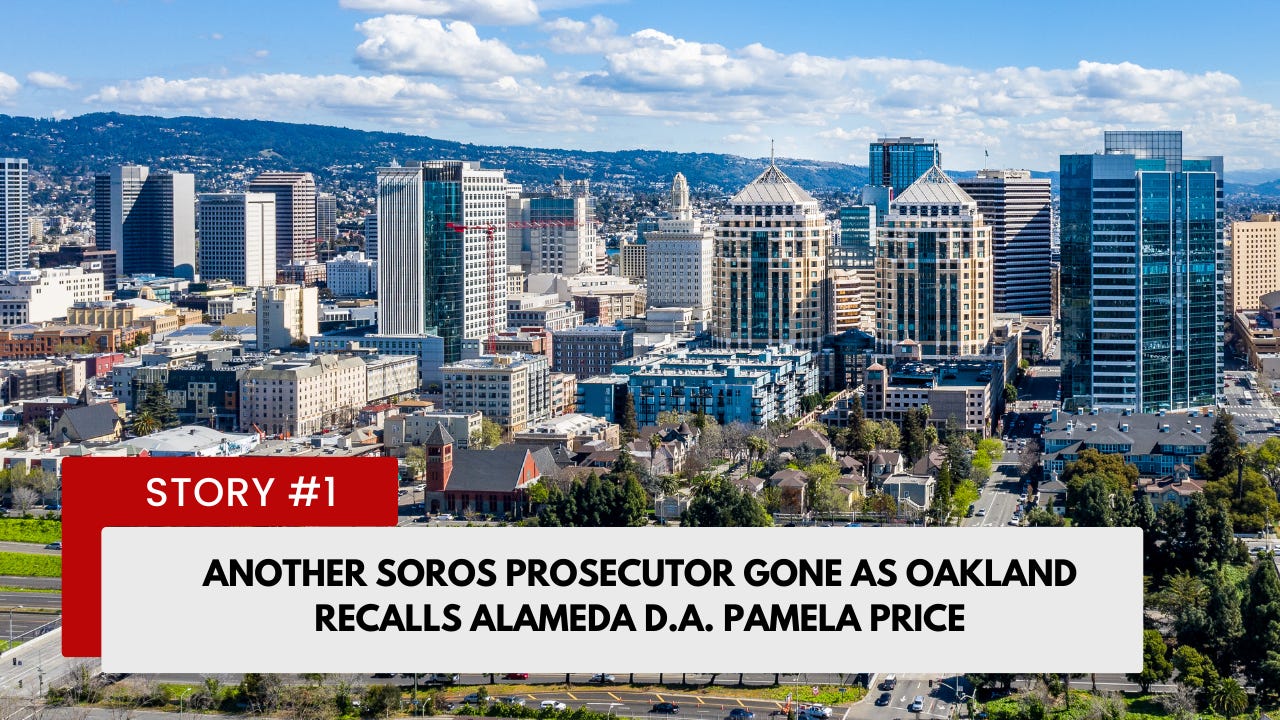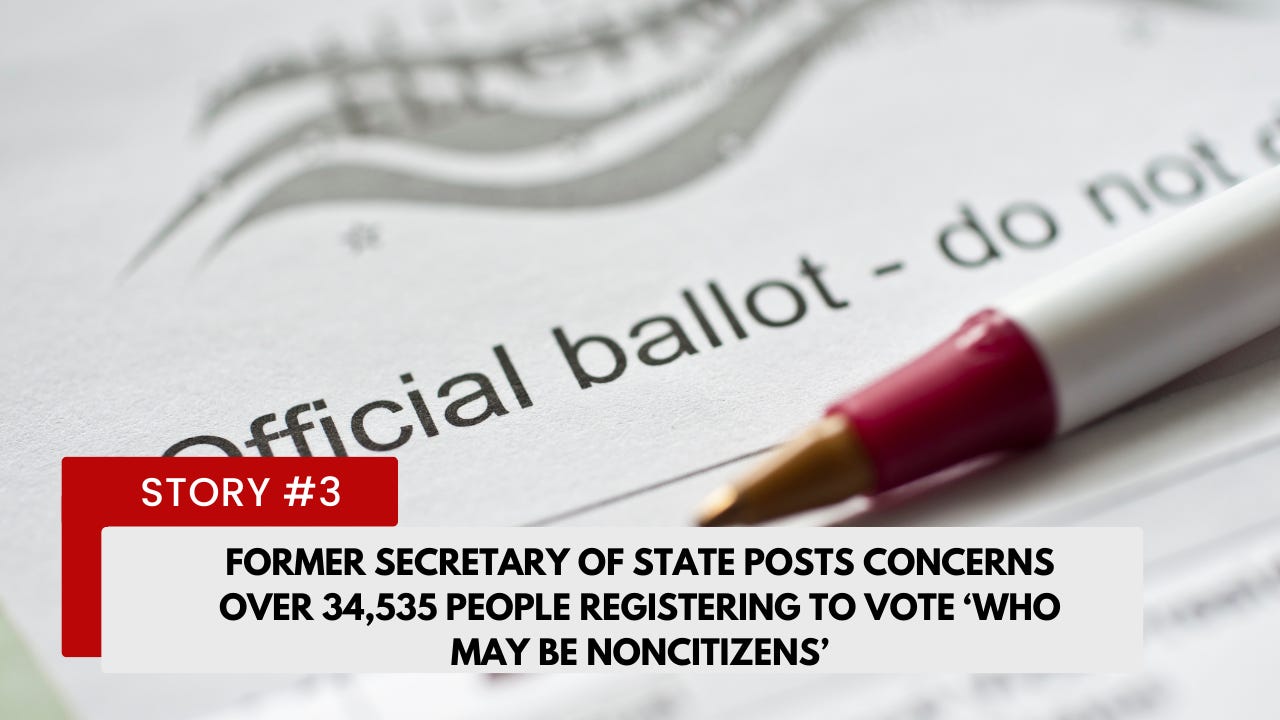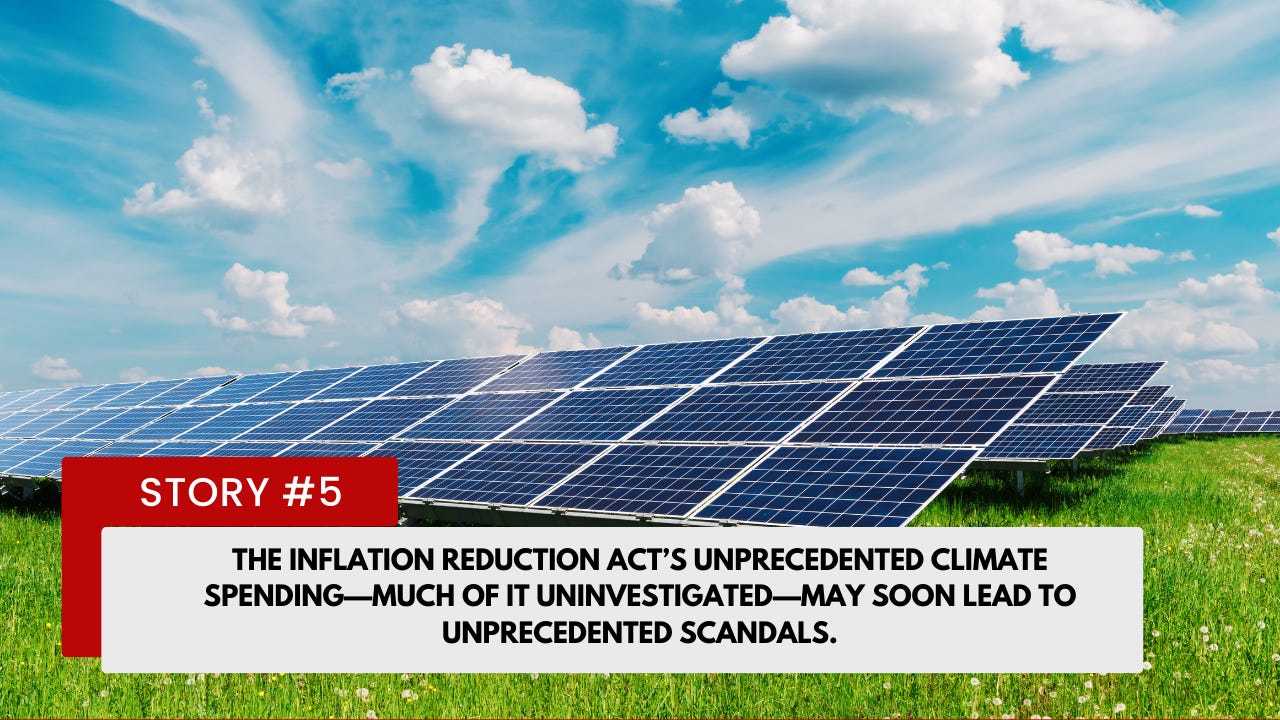
OAKLAND, CALIF - Voters in Alameda County, which includes the city of Oakland, have recalled District Attorney Pamela Price, a George Soros-backed prosecutor who adopted “criminal justice reform” policies unpopular even with left-wing residents.
The San Jose Mercury News reported:
The recall targeting Alameda County’s top prosecutor resulted in success Tuesday night, potentially striking a blow to progressivism in the criminal justice system across in one of California’s bluest enclaves.
In unofficial final results posted by Alameda County early Wednesday, District Attorney Pamela Price became the first elected district attorney to be recalled from office in the county’s history. Voters voiced support for removing her from office less than two years into her first, six-year term, though final results could take days to be finalized as city and county election officials continue to count ballots cast on Election Day.
…
In voting, 64.8% of the electorate voted to recall Price, while 35.2% voted to keep her on board.
Price was one of scores of radical left-wing prosecutors funded by Soros in recent years, many of whom arose during the Black Lives Matter movement.
Crime became so bad in Oakland, which adopted “defund the police” policies, that Price’s own laptop was stolen from her car. In addition, Price was accused of nepotism after hiring her boyfriend despite concerns about his record. Click here to read more.
Rapid Radios are great for anyone. Click here to order. Use promo code ‘BONDY10’ to get 10% off.

As votes continue to be counted, Donald Trump’s lead feels so massive that it’s hard to see how Kamala Harris didn’t significantly underperform the Biden Benchmark of 2020. She didn’t just blow it; she blew it bigly.
In 2020, there were 81+ million votes cast for Biden and 74+ million cast for Trump — a grand total of over 155 million votes. Currently, there’s about 138 million total votes counted for the 2024 cycle. Trump is less than 3 million short of his 2020 benchmark, meaning the bulk of the almost 20 million vote deficit is coming from the Harris camp. Of course, votes in some of the big blue states will continue to trickle in for days (or weeks?!) after the fact, and Harris’ final count will continue to rise. But this is still a drastic difference for the morning after; where the hell did all these Biden loyalists go?
The West Coast is most glaring: Harris is over 800,000 votes short of 2020 numbers in Washington (64% reporting); 400,000 votes short in Oregon (73% reporting); 500,000 votes short in Colorado (76% reporting); and a whopping 5.5 million votes short in California (58% reporting). This will likely continue to narrow. But take California, where the split is 57% to 40% Harris. If she stays on the same trajectory, that will still put her almost 2 million shy of Biden’s 11+ million votes in the state. Even if she ramps it up to Biden’s 63% to 34%, that’s only 10.3 million votes for Harris. Click here to read more.

LANSING, Mich. – Republican State Sen. Ruth Johnson has asked Secretary of State Jocelyn Benson for information about what processes are in place to prevent noncitizens from voting. Johnson claimed there were 34,535 individuals “whose name, date of birth, and Social Security numbers do not match any record found in the Social Security database.” Johnson said those people may be noncitizens.
Johnson stated the information came from the Social Security Administration’s Help America Vote Verification system, which she said in a press release was used by state officials to verify new voter registrations. Johnson, who served as Secretary of State from 2011 to 2019, made her claims in light of a University of Michigan student from China who was a nonresident who voted in the 2024 November election.
The student voted Oct. 27 and faces criminal charges. “We have no system to check if people are registering or voting who are not eligible,” Johnson said in a press release. “The only way the student at UM was caught is because he requested his ballot back from the clerk.” Click here to read more.

NEW YORK — Mayor Adams on Thursday applauded a drone initiative that’s aimed at cracking down on subway surfing, following the deaths of six people this year, including two teens who perished while subway surfing just in the past week.
Adams touted the NYPD’s drone program as a way the city is working to prevent more deaths.
“We will see the lives that are lost, but rarely do you get the medal for the lives that are saved,” the mayor said at a press conference outside a Queens school near the aboveground No. 7 train. “And these offices and this team and this technology is saving lives.”
The aerial drone program started last year as a pilot initiative and was made permanent this June, NYPD officials said.
The NYPD has two drones that are put to work during the after-school hours from 2 p.m. to 5 p.m. flying above the J, M, Z and 7 subway lines to alert officers on the ground if a subway surfer is spotted. The officers then apprehend the daredevils at a subway station and take them into custody. Click here to read more.

NEW YORK, NY - If it weren’t for the election season swamping news coverage, odds are more people would be talking about the revelation that, to quote a Bloomberg headline, “The World Bank Somehow Lost Track of at Least $24 Billion.” In fact, that may understate the reality: the World Bank’s “accounting gap” could be as big as $41 billion. The missing funds in question were for “climate finance” projects, “financed by taxpayer dollars from its member countries, the biggest being the US.”
According to the Oxfam report that was the source for the Bloomberg story, “There is no clear public record showing where this money went or how it was used, which makes any assessment of its impacts impossible.” It is possible that much, maybe even most, of the missing money went to the intended people and purposes. But only the hopelessly naïve would dismiss the probability of rampant waste, malfeasance, graft, and outright theft as explanations for that “gap.” Spending of such magnitude and velocity with sloppy oversight is an invitation to thieves.
But the oversight scandal at the World Bank is chump change compared with the U.S. Inflation Reduction Act (IRA) and its massive planned “climate finance” program. The misnamed IRA is, in the words of its advocates, the “largest climate policy in US history.” [emphasis added] The law’s ambitions dwarf those of the World Bank. Click here to read more.




















